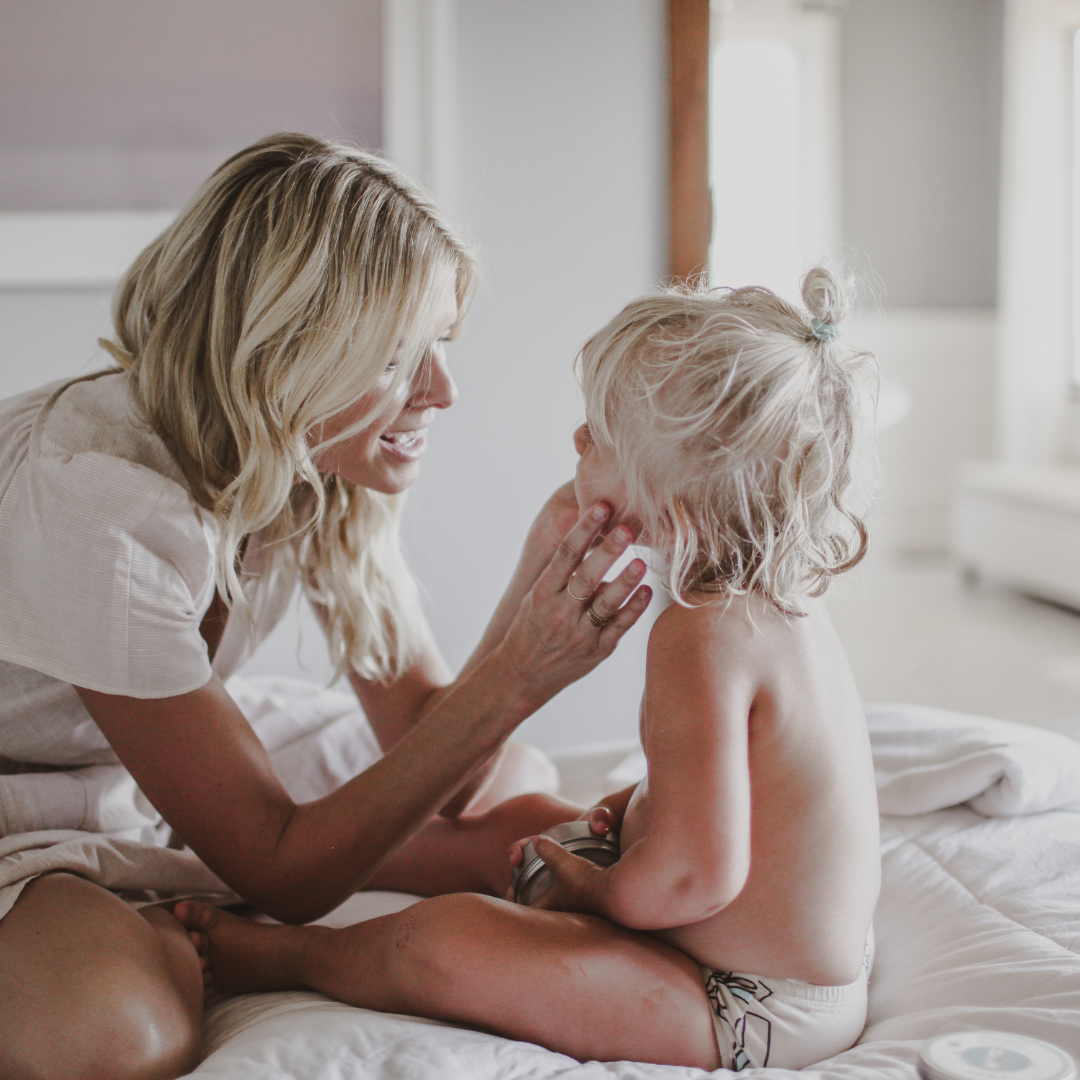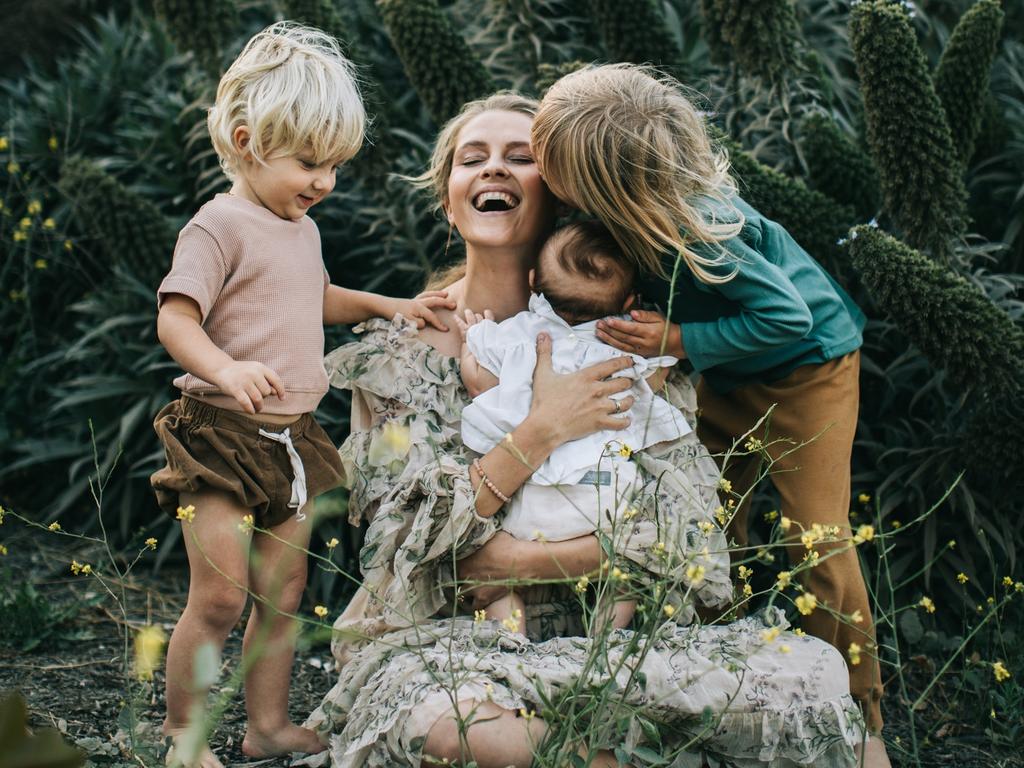No one said non-toxic living was going to be easy! Today we explore some of the most common misconceptions, questions and hurdles most of my clients face when starting their journey into non-toxic living.
True or False: If its sold in stores in the is it must be safe
False: Personal care products, that we use on our bodies, cleaning and home products that we are exposed to every single day do not have to be tested for safety by anyone and can thus skip right onto supermarket shelves. In fact, 80% of the chemicals in personal care products have never been tested for safety. Essentially, our families are thus guinea pigs in a long term experiment for these corporations.
Until laws in the US change, it is up to you as a household head to do your research and determine what is safe and what could potentially expose your children to harmful chemicals.
Remember: using any given store bought product with any given chemical once or twice will probably not harm you ... however when we talk about non-toxic living what can harm you is the cumulative effect of many different chemicals (from different daily use products like your shampoo, moisturizer, makeup, bath gel, home fragrance, bathroom cleaner, dry cleaned clothing etc) being used every single day over many years.
True or False: If a product claims to be "all natural" or "green" or "pure" or "safe for babies sensitive skin" and even "organic" it is the same as non-toxic and must be safe to use.
False: This is called greenwashing. Terms like natural, pure, hypoallergenic, botanical, and green are unregulated and sadly don’t mean anything. It is the company trying to give off an image of being environmentally responsible, while still including a long list of potentially harmful chemicals in their products. Unfortunately, it works like a charm since many well meaning consumers purchase these products thinking that they are buying products that are better for their families and for the environment.
How can you as a consumer, avoid being greenwashed?
1. Avoid products labeled "caution," "warning," "danger" and "poison," all of which indicate the item is hazardous to you and the environment.
2. Look for independent reputable third party verifications: Look for labels from groups like Forest Stewardship Council, Energy Star and the U.S. Department of Agriculture certified organic labels.
3. Choose fewer ingredients: Choose whole foods and produce over processed foods. Vinegar and water to clean over antibacterial products with a long list of dubious ingredients, maybe coconut oil over a store bought fruity smelling hand cream
True or False: If the company has a foundation that helps raise money for breast cancer their products definitely would not have chemicals linked to breast cancer
False: This is perhaps one of the most hypocritical of all situations. The reality is that many of the U.S.'s biggest beauty companies use ingredients that are known to be harmful and linked to breast cancer and then set up foundations and charities to support breast, cervical and ovarian cancer research.
The most common chemical used in these beauty products are preservatives called parabens (indicated by any word that ends in paraben, like methylparaben, propylparaben) which have actually been found in biopsies of breast cancer tumors at levels that are similar to their concentrations used in personal care products.
Even 'paraben free' products are suspect since we don't necessarily know what replacement chemicals are being used. Basically, if a product promises to be preservative-free, and it doesn’t require refrigeration or immediate use, you should suspect potentially harmful chemicals being used.
Additionally everything from plastic water bottles to artificial fragrances- which all contain phthalates which are also known endocrine disruptors that mimic estrogen- often use the pink ribbon to sell their products.
True or False: Eating organic is enough
While I always encourage small changes that make a big impact in your daily routine - like eating organic- and encourage people to take baby steps to avoid getting overwhelmed by a quick and total non-toxic living overhaul, the reality is that just making one change is not enough to really limit your total chemical exposure. It is a great start, but if you want to really make a difference in your health you have to do more.
You’d be shocked at the amount of chemicals that are used in the products we use everyday—in our homes and on our bodies— chemicals that have never been tested for safety on adults nor children (ie: of the over 87,000 chemicals approved in the US for daily use, only a little over 200 have ever been tested by the government for safety. Another interesting fact: the EU has banned over 1,100 chemicals from personal care products, but the US has only banned about 13.....). Start with clean eating but also consider switching your cleaning, some kitchen and personal care products too.
True or False: If a company says a chemical is safe under a certain limit/ amount it must be safe to use on my kids
False: it is unethical to test chemicals on babies .... so no scientific study will know what effects a certain chemical could have on a baby or a fetus. The reality is that fetuses and babies are tiny in size and are undergoing massive development when compared to adults. Adults are much bigger in size. A chemical will thus affect a a developing baby or young baby much more than it will an adult. This is why when you are pregnant or have a young baby at home you should be extra cautious about the chemicals you are exposed to on a daily basis.
Also, these safety claims never take into consideration the potential cumulative effects of using that chemical, mixed with many other chemicals from other daily use products, for years even decades.
True or False: If a product says it is unscented it must not have endocrine disrupting fragrance chemicals and be safe to use
False: unscented is not the same as fragrance free. There are probably chemicals being used to make the product unscented! In the US, companies are not required to disclose the chemicals they use in a fragrance but it is not unusual for dozens of potentially toxic chemicals to be used to achieve any given fragrance. Among them, endocrine disrupting phthalates, which cause the fragrance (or unscented fragrance) to stick to your skin or the product.
Opt for 'fragrance free', make sure the word 'perfum' nor 'fragrance' appears in the ingredient list and if the product has a smell make sure it comes from organic pure essential oils and not synthetic chemicals.
True or False: BPA free products are safe
False: BPA is a very well known endocrine disrupting chemical linked to obesity. diabetes, problems with fertility and reproductive organs, susceptibility to various cancers and cognitive/behavioral deficits like ADHD.
It is used to harden plastics and, while it is rarely found in baby bottles, sippy cups and water bottles anymore, is still found in medical devices, compact discs, dental sealants, water bottles, the lining of canned foods and drinks, store receipts and many other products. plastics marked with recycle codes 3 or 7 may be made with BPA.
Most parents today know to choose items labelled "BPA free" but, unfortunately this is not necessarily a safer solution since the main chemical used today to replace BPA , BPS, is showing signs of being just as bad as BPA.
The best solution will be to avoid plastics and opt for stainless steel, glass, paper, bamboo, wood or silicon, especially with products related to food intake or used by infants.
Aida Garcia-Toledo is the founder of Non-Toxic Munchkin, a community of parents and caregivers looking for a healthier life for their families. Non-Toxic Munchkin has become a trusted destination for those wanting to make the transition to a healthier and less chemically dependent life, offering the newest research, tips, product reviews and – always- support and encouragement.
Aida works directly with families in the LA area, companies throughout the US and countless parents worldwide through her blog, social media and consulting company.
“It is not a diet. It is not a detox. It is a new way of life.”
You can connect with Aida at:
Instagram: @nontoxicmunchkin
Facebook: www.facebook.com/nontoxicmunchkin/
website: www.nontoxicmunchkin.com


